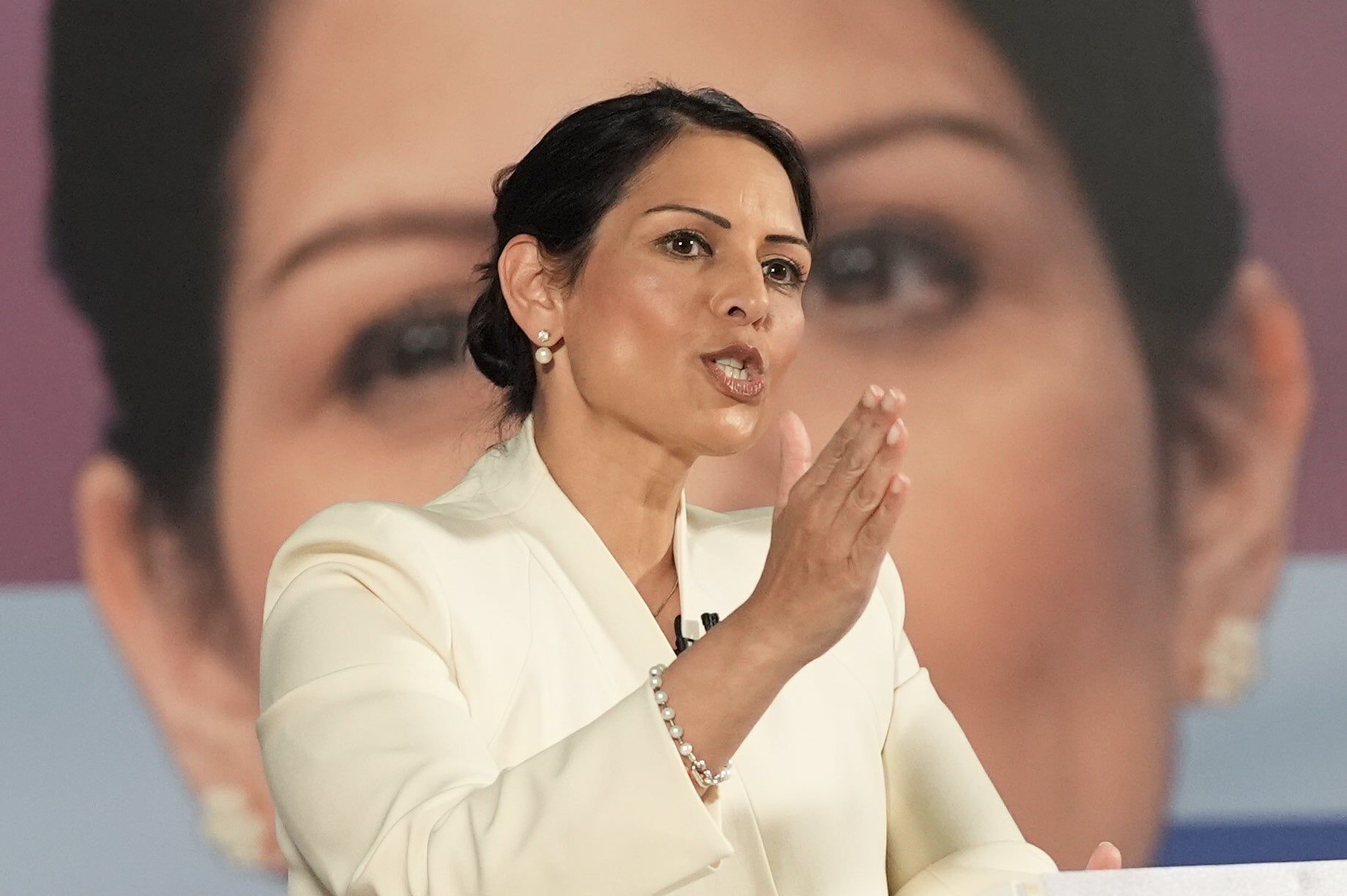Can Priti Patel shake up the Tory leadership contest?
The former home secretary wants to give more powers to members, says a sceptical Sean O’Grady


After the heaviest general election defeat since the dawn of modern politics in 1832, it is remarkable that there are six people vying to be the next leader of the Conservative Party.
Whoever wins will, most likely, spend the coming years as leader of the opposition – one of the worst jobs in politics – in charge of a denuded, demoralised and mostly talentless party at a time when the public would rather not listen to them. It’s a tough gig, but somebody’s got to do it… and despite the torpor of political summer, there have been modest signs of life in the contest…
Are we talking about Dame Priti Patel?
Yes we are. “Launching” her leadership campaign, even though it has been running for some weeks now, Patel reinforced her fairly blatant appeal to Tory members to elect her in return for rather more say in the way the party is run.
She identifies as a grassroots activist, she says, and laid the flattery on with a trowel for those 170,000 members she calls “the heart and soul of our party”. She’d give them a directly-elected party chair, there’d be no more “parachuted in” metropolitan elite types standing as candidates, and much else besides.
Will that be enough to win it?
Probably not. If she made it to the final two candidates that go forward to the membership-wide vote, she might stand a chance with such a formidable charm offensive. However, many of her parliamentary colleagues think handing over more power to the Tory membership – so grotesquely unrepresentative of the wider population – would be electoral suicide.
For most Tory MPs it’s the equivalent of what happened when Tony Benn campaigned for the “democratisation” of Labour, or the Corbynista takeover from 2016 to 2019 – both disasters. Given that, and the natural tendency to hoard power, Patel’s attempt to organise a grassroots coup will probably fail.
What’s happened to Robert Jenrick?
He’s done something odd with his hair, as well as his political views which have veered from the Sunak-style mainstream to Braverman-esque extremism since he quit government over immigration last year (quite conceivably with a view to positioning himself as the next leader following the inevitable election defeat).
He’s still banging on about the small boats but has been upstaged by Tom Tugendhat who wants to pass a law limiting net migration to the tens of thousands – a spectacularly impractical proposal. You may as well try to abolish gravity.
James Cleverly has been saying interesting things, hasn’t he?
True enough. On something called Chopper’s Podcast on GB News, Cleverly has posited that the British empire was a good thing because without it he would not now be a contender for the leadership of the Tory party and a possible prime minister.
To quote his own version of hypothetical history: “Progressives say how proud they were of the UK that we had a prime minister of Indian heritage and a home secretary of African heritage, a trade secretary of African heritage, a former home secretary that was Muslim – that is a direct repercussion of Britain’s imperial past. That would not have happened had the British empire not existed. So you cannot in good conscience be proud of the ethnic diversity at the top of the British establishment for want of a better word, without also recognising that this country’s amazing history was instrumental in delivering that."
It’s obviously flawed but shows an attractive flexibility of mind.
Is Kemi Badenoch still on course to win?
Not so much. Before the general election, she was the bookies’ favourite to win the leadership, but no longer. She’s been elbowed out of the way by the new-look Jenrick, and now stands a 33 per cent chance of securing the job, with her rival on 40 per cent.
Even so, she’s showing no loss of confidence and has the demeanour of someone who believes this is her – and Britain’s – moment of destiny (a typically arrogant attitude that has harmed her campaign).
There are echoes of Michael Gove – an early Badenoch fan – in her rhetoric, and its Gramscian themes are reminiscent of the sort of stuff her former ministerial boss used to come up with. Thus, her plan to “renew” Britain in the 2030s focuses on the systematic constitutional and traditional political constraints on the abuse of central executive power.
If she did ever make it to 10 Downing Street, Badenoch would seek to emasculate the courts, the devolved administrations and independent agencies (such as, presumably, the Bank of England) and sweeping away “the framework bequeathed to us by Blair”.
Badenoch says: “By design, our legislative, social and political frameworks prevented us from being truly conservative. In some places they prevent us from even being analytical.”
What about the NHS, schools, climate change and the economy?
Hardly mentioned yet.
Subscribe to Independent Premium to bookmark this article
Want to bookmark your favourite articles and stories to read or reference later? Start your Independent Premium subscription today.



Join our commenting forum
Join thought-provoking conversations, follow other Independent readers and see their replies
Comments